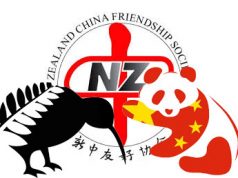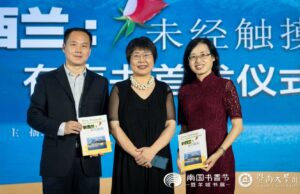NEXT BRANCH MEETING
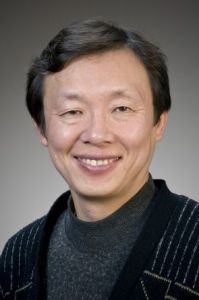
Professor James Liu will speak on “Chinese Indigenous Psychology”
The global system of world governance and the global system of psychology were born in an era of exclusive Western dominance. Young educated people of the world are in agreement that agency in world history has belonged to the West and to Western ideas.
Of these ideas, among the most influential has been Liberal philosophy, with its rallying call of freedom, equality, and fraternity. While the world is much more free than it ever was, inequality rather than equality is the global norm. In this world of haves and have nots, an alternative ideology to Liberalism that I refer to as Benevolent Authority is very prevalent in the developing world, especially mainland China. I describe a new program of research on Chinese systems of Authority that question Western approaches demonizing authoritarianism as the root of all evil. Eastern (especially Confucian) approaches portray authority as benevolent with the goal of creating an ethical and moral social order based on self-cultivation rather than the law and human rights under the law. Asia, and China in particular, with its history of bureaucratic competence and moral-ethical authoritarianism, has a model for governance that cannot be ignored given the weakening of the United States and the rise of developing nations in Asia, Africa, and Latin America. All of us can contribute to the construction of global consciousness by understanding the historical basis of our indigenous cultural mentalities, and understanding the inflection points that allow for transition, change, peace and conflict between them.
James Hou-fu Liu is Professor of Psychology at Victoria University of Wellington and Deputy Director of its Centre for Applied Cross-Cultural Research. He was born in Taiwan and grew up in the Midwestern United States. He obtained a Bachelor’s Degree in Computer Science from the University of Illinois and worked as an aerospace engineer. Then he completed a PhD in psychology in 1992 at UCLA, and has been teaching at Victoria University of Wellington since 1994. His research is at the intersection of cross-cultural psychology and inter-group relations. A naturalized citizen of two countries, he describes himself as a “Chinese-American-New Zealander”.
Wednesday, 18 April 2012, at 5:45 pm
Connolly Hall, Guildford Terrace, off Hill Street, Thorndon, Wellington.

(Car park up Guildford Tce beside Hall)
An optional Chinese buffet meal, supplied by the Fujiyama Café, will follow the meeting at 7 pm. Orders for the $11.00 meal (please pay at the door) will be taken up till 6 pm. If you think you may be arriving late, please let the Secretary know in advance.
ALSO COMING UP THIS MONTH (see below for details)
25 Apr ANZAC Day
26 Apr, 7:00 pm NZCLA AGM, 101 Wakefield St
28 Apr, 3:15pm Mandarin Corner, 20 Kelburn Parade
IDIOM OF THE MONTH (from George Mills)
有朋自远方来,不亦乐乎!(yǒu péng zì yuǎn fāng lái, bú yì lè hū)
To have friends coming in from afar, how delightful!
AGM REPORT
Our March meeting started with the Branch AGM as usual. After the apologies were received and the minutes of the last AGM had been reviewed briefly, Bernie presented his President’s Report for the year. In the absence of our Treasurer who had been held up by a flight cancellation, Bernie also presented the Financial Report. This was followed by the election of Officers and Committee, at which the following were duly elected:
President: Bernie Richmond Vice President: Ray Brownrigg Secretary: Bruce Asher Treasurer: (vacant) Committee: Bing Fon, Rosemary Jones, George Mills, Luke Qin, Lilly Shi, Ellen Chuan Yang
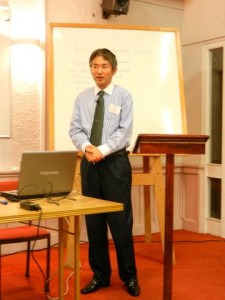
PRESENTATION REPORT FROM LAST MEETING (by Luke Qin 秦瞳)
After the AGM Dr CHEN Ben of the Confucius Institute at Victoria University of Wellington addressed the audience with a pictorial recount of his experience teaching Chinese at Confucius Institutes in Turkey and New Zealand. As of February 2012 there have been 358 Confucius Institutes jointly founded by Chinese universities and their foreign counterparts in 104 countries, and 500 Confucius classrooms established at secondary school level. Among them are Wellington College and Rotorua Boys’ High School and work is well underway to bring a 3rd Confucius classroom to a school in Wanganui, Dr Chen Said.
Since its inception in June 2010 the CIVUW, jointly established with Xiamen University, has made great strides in hosting a significant number of cultural, musical and academic events, including the prestigious “Chinese Bridge” competition, “China Dream” concert, “Discover China!” workshop and public lectures by visiting Chinese experts on China’s urbanisation and US-Sino relationship. A number of courses and programmes such as the Chinese Language proficiency tests and Chinese for business are also being offered on an ongoing basis.
Dr Chen noted that although New Zealand and China are geographically so far away they have so much in common as all people are similar in nature only with different customs. After years of studying and teaching Chinese overseas Dr Chen has come to the realisation that one should not be too proud to learn nor too afraid to teach and “what we need to study closely is not really the foreign cultures but that of our own.”
NZCFS WELLINGTON BRANCH LOOKING FOR A TREASURER
As our treasurer of recent years, Doreen Launder, has moved permanently to Auckland, the society is looking for somebody to be treasurer. The society provides a copy of accounting software to assist with this process. Anybody who is prepared to act in this role should contact a committee member as soon as possible.
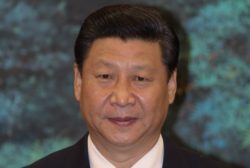
XI JINPING, CHINA’S HEIR APPARENT
Heir apparent to the post of General Secretary of the CCP in late 2012, as well as the Chinese Presidency in early 2013, vice president Xi Jinping is the son of a former vice premier. With an easy smile, he is a well-seasoned Chinese leader, who has not been tainted by any scandals during his career. During the Cultural Revolution, Xi spent a decade farming in the then backward inland province of Shaanxi. His political career took off in the wealthy coastal province of Fujian, where he worked himself up to governor in the 1990s. Appointed CCP party boss in 2002 of dynamic Zhejiang province, he briefly ran Shanghai in 2007 before being elevated to the all-important Politburo Standing Committee during the party congress later that same year. Xi has many friends among the party’s elder establishment, people who know and trust him and his father in the past, among them former Party Secretary Jiang Zemin and Jiang’s chief political strategist and former Politburo Standing Committee member Zeng Qinghong. He also has past links with the military through a brief stint as a private secretary to a People’s Liberation Army general in the 1980s. As vice president, Xi has been tasked with managing macroeconomic policy, overseeing the 2008 Beijing Olympics, and running the Central Party School. Despite the 2008 economic slowdown, China has continued to produce impressive GDP growth, and the Olympics were considered extremely successful from a domestic perspective. Like the man he is expected to succeed before he ascended to party secretary, Hu Jintao, Xi also oversees Sino-American relations. (from Chatham House, February 2012 edited.)
SUBSCRIPTION RENEWALS
Subscriptions for 2012 are now due. Please visit the website: nzchinasociety.org.nz/join-now/wellington-branch-membership-application/. We prefer that you fill in all the details on the subscription form each year to confirm that we have your correct information. Thank you to those who have already renewed.
MANDARIN CORNER 汉语角 3.15pm – 5.00pm Saturdays during school terms
Mandarin Corner meets Saturdays (excluding school holidays), 3.15-5.00 pm, Room 103, 24 Kelburn Parade, Victoria University of Wellington. There is a topic for each session to stimulate interest.
28 April 2012 – Chinese Game Weiqi (Go) 中国围棋
Go (weiqi in Chinese, igo in Japanese, baduk in Korean), is an ancient board game for two players that originated in China more than 2,000 years ago. The game is noted for being rich in strategy despite its relatively simple rules. http://en.wikipedia.org/wiki/Go_(game)
All welcome. Gold coin donation.
Contact: Ellen Yang 杨川, 473-7558, 027-4756888, [email protected].
CHINESE FILM 中国电影 Date: Thursday 26 April Time: 7.00pm – 9:30pm
Venue: Committee Room One, Wellington City Council, 101 Wakefield Street.
It is intended that at this meeting the AGM of the NZ Chinese Language Association will also take place. There will be no film shown, but Dr. Dongfang Wang, visiting research fellow in the China Centre, Victoria University of Wellington will give an up-to-date briefing on Development of Volunteer work in China. Dr. Wang is from China University of Political Science and Law.
CHINA IS INNOVATING

Some of China’s innovation achievements are visible: a doubling of the global percentage of patents granted to Chinese inventors since 2005, and the growing role of Chinese companies in the wind- and solar-power industries. Other less visible developments include advances by Chinese companies in domestically oriented consumer electronics, instant messaging, and online gaming. Chinese companies enjoy both strengths and weaknesses in this area. The Chinese have traditionally had a bias toward innovation through commercialization—they are more comfortable than many Western companies are with putting a new product or service into the market quickly, and improving its performance through subsequent generations. It is common for products to launch in a fraction of the time that it would take in more developed markets. While the quality of these early versions may be variable, subsequent ones improve rapidly. Chinese companies also benefit from their government’s emphasis on indigenous innovation. Chinese authorities view innovation as critical both to the domestic economy’s long-term health, and to the global competiveness of Chinese companies. China has already created the seeds of 22 Silicon Valley–like innovation hubs within the life sciences and biotech industries. In semiconductors, the government has been consolidating innovation clusters to create centres of manufacturing excellence. But progress isn’t uniform across industries, and innovation capabilities vary significantly: several basic skills are at best nascent within a typical Chinese enterprise. Pain points include an absence of advanced techniques for understanding—analytically, not just intuitively—what customers really want, corporate cultures that don’t support risk taking, and a scarcity of the sort of internal collaboration that is essential for developing new ideas. (from McKinsey Quarterly, February 2012, edited.)
CONFUCIUS INSTITUTE NEWS (from the CIVUW team)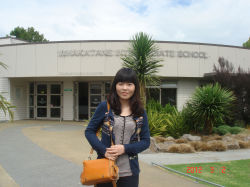
The VUW Confucius Institute has launched several new Chinese language initiatives. Two Mandarin Language Assistants (MLAs) from China, Gao Xinru and Zhang Qian, have been placed in various schools in Rotorua and the Bay of Plenty area to assist in Chinese language teaching. We are looking to place a third MLA in the Wellington area.
We have started offering our own courses since March 2012. Our courses range from language (Chinese for Business and Chinese for travellers) to culture (Chinese painting, opera, martial arts and ballet), and are open to students and staff at Victoria University and members of the public. All courses are offered on an ongoing basis and are held on a weekday evening or weekend afternoon on Kelburn Campus.
The HSK tests are just around the corner. Mark 20th May 2012 in your calendar for the HSK Level 1-6 written and oral tests. The deadline for the online application is 23th April 2012. The Confucius Institute plans to offer a series of training workshops for test candidates in April and May. For more information regarding the HSK tests and CI courses, contact Mr. Liu Yaru at [email protected].
The VUW CI is proud to host the Wellington Regional ‘Chinese Bridge’ Speech Competition for secondary and tertiary students, to be held on 5th May 2012. Last year we achieved spectacular results with Nathalie Harrington from VUW winning the First Prize in China. We hope to have another great crop of new talent this year! Interested schools are invited to register their students before 30th April 2012 by email to [email protected].
NZCFS RAFFLE
With a wonderful first prize of two return tickets to China, provided by Air New Zealand to recognise the number of bookings we make through them for our tours, every dollar of the $5 ticket price goes to the Society, with $1 of those we sell going to our Branch. Tickets will be on sale at our meetings, with the draw done in Auckland on the Chinese National Day, 1 October, 2012.
We would be very pleased if anyone would like to take a book of 10 tickets to sell to others outside the society.
KING YAMA
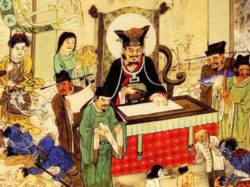
In Chinese folk beliefs, King Yama is the judge of the dead, who presides over hell and is responsible for the life, death and transmigration of human beings. He’s said to have a book listing the length of life of every individual. When someone’s life in the mortal world has come to an end, King Yama would order fearsome guardians of hell to bring the newly dead to the hell for judgment. If the person did good things before death, they could be brought to heaven and enjoy good wealth; if they did evil things, they could be sent to hell for punishment. There was no concept of King Yama in ancient China till Buddhism was introduced to China via ancient India, when the belief in King Yama as the god of hell became entrenched. The term Yama originally means “trussing up” in Sanskrit, referring to trussing up sinners. Later, due to the interactions between Buddhism and Taoism, the indigenous Chinese religion, variations of King Yama with Chinese flavours were developed–the Ten Kings of Hell. They have their own functions and powers as well as ways to punish sinned ghosts. In folk culture, there are lots of popular sayings about King Yama, such as “when King Yama is away, the ghosts are free to do whatever they want”, which means when someone in charge is absent, his underlings run wild; the saying “it’s easy to meet King Yama, but the devils are hard to tackle” means low-ranking officials are even more difficult to deal with than their superiors; and the saying “if King Yama rules that your life ends at the third watch (midnight), you can’t live to the fifth (dawn)” reflects “the fatalistic belief about the length of life”. (source: cultural-china.com)
MEETING DATES FOR 2012
Due to the illness of Douglas Day, we do not have speakers lined up for the whole of 2012 yet, and we would welcome any suggestions for potential speakers. However we do know the dates for our meetings, since we have had to book Connolly Hall. The dates we have chosen (and for which Connolly Hall is available) are: Wed 16 May, Sun 24 Jun, Sun 15 Jul, Wed 15 Aug, Wed 19 Sep, Wed 17 Oct, and Wed 21 Nov.
2012 NZCFS NATIONAL CONFERENCE – AUCKLAND MAY
The 2012 National Conference and AGM will be held from 18 – 20 May in Auckland, where the Society began 60 years ago. The theme is appropriately: “By honouring our past, we find our future”.
See the March National President’s Notebook for further details.

DINOSAUR FOOTPRINTS IN EASTERN CHINA
In July of last year, Chinese palaeontologists reported finding dozens of fossilized dinosaur footprints in the qi yunshan national geopark in Anhui province. The newly-discovered footprints could date back to the cretaceous period at least 145 million years ago, which palaeontologists believe would help understand how dinosaurs lived and the climate back then. It is not the first time scientists have discovered fossilized footprints of the prehistoric animals in the qi yunshan 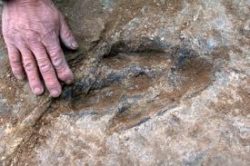 national geopark. 36 dinosaur footprints have been discovered there since the 1990s. The geopark is famous for the unique Chinese danxia landform, which is characterized by steep cliffs formed from red-coloured sandstone. (source: xinhua)
national geopark. 36 dinosaur footprints have been discovered there since the 1990s. The geopark is famous for the unique Chinese danxia landform, which is characterized by steep cliffs formed from red-coloured sandstone. (source: xinhua)


